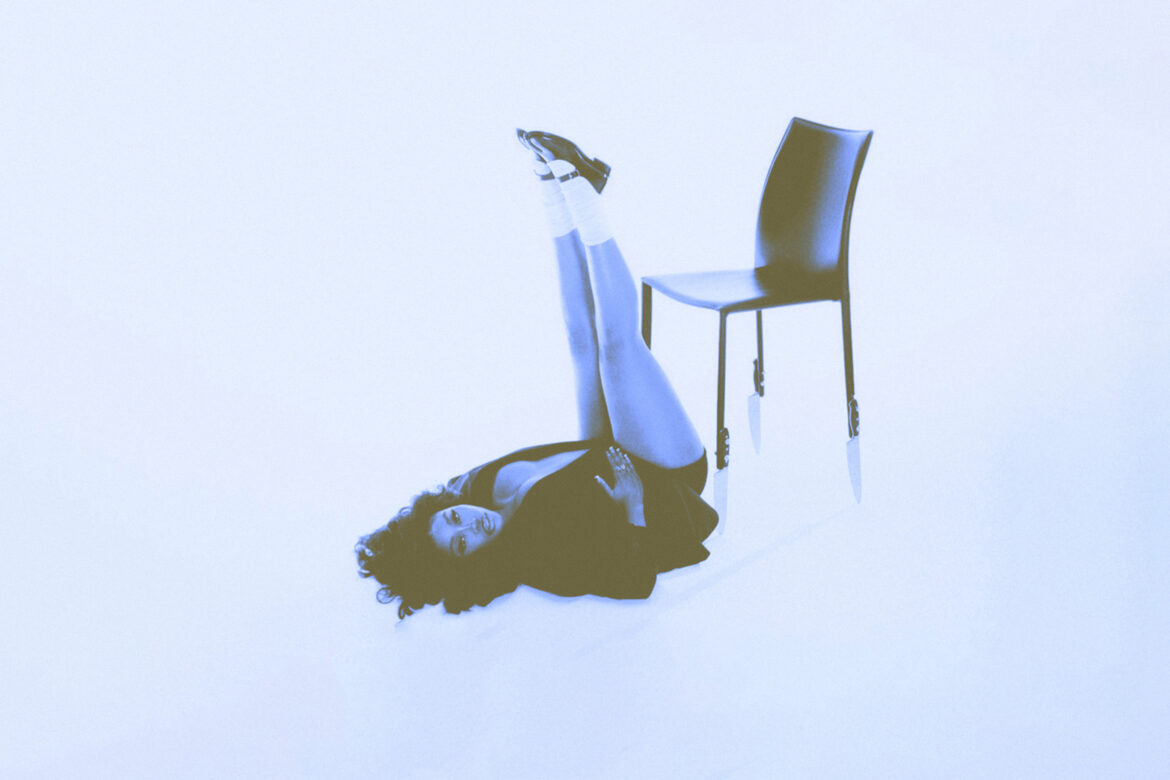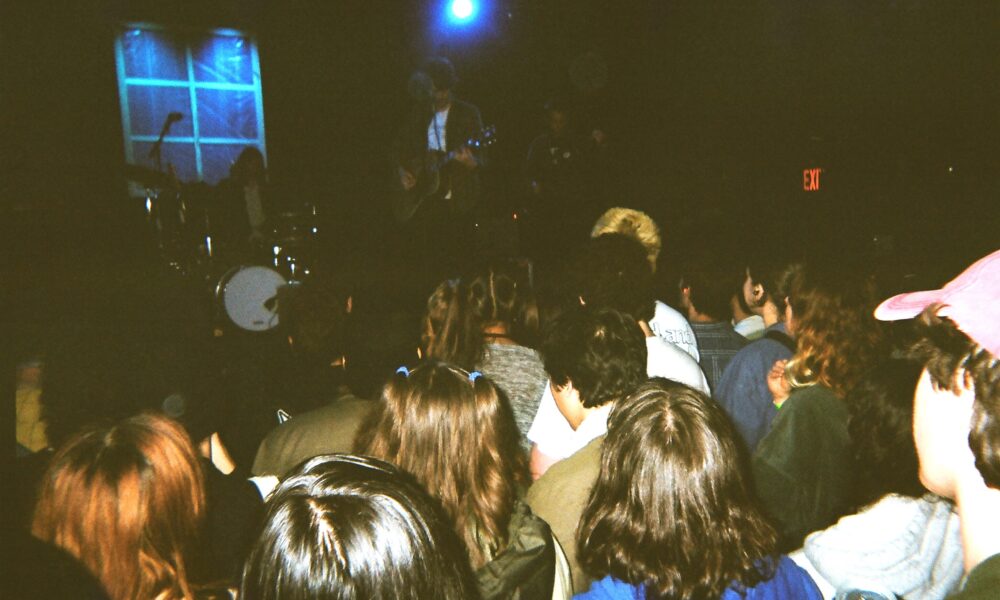Graphic by Michael Kearney
Surpassing five years since the release of her 2017 debut album Ctrl, contemporary R&B singer SZA takes her listeners on a voyage through the highs and lows of her life in the highly anticipated SOS. The worldly success of the electrifying yet vulnerable Ctrl led SZA to continually ride the wave of stardom, sporadically releasing singles and collaborations with artists like Lorde, Doja Cat and Post Malone. During the 2022 Met Gala, SZA unveiled the upcoming “SZA summer,” dropping Ctrl (Deluxe) — with seven bonus tracks — in June.

Signals that an album was on the horizon became more frequent as the year progressed, leaving fans begging for new music. On Nov. 30, SZA posted the cover of SOS on Instagram. In the photo, she gazes into the endless sea while pensively sitting at the edge of a diving board. SZA crafted the new cover as a tribute to the infamous Princess Diana paparazzi photo and the isolation it exuded. Under intense pressure to achieve perfection, Diana’s stress and exhaustion resonated with SZA throughout the process of developing her sophomore album.
Traveling through riptides of both peril and serenity, SOS tells the emotional story of SZA’s career through a blend of music genres — from classic R&B to pop-punk to hip-hop. Experiences from both her professional and personal life are hidden within every track, conveying the overarching themes of heartbreak and seclusion, healing and acceptance, and vengeance and hatred. Despite the album covering numerous topics over several genres, SOS has a continuous and cohesive flow, with each song complementing the next.
The track “SOS” opens the album with beats that signal “SOS” in Morse code, along with an exploding emergency flare — two distress signals that plead “save our souls.” The title song uncovers the themes explored throughout the rest of the tracklist. SZA begs for help and communicates defeat, closing the track with “And I cried and cried / Said what’s on my mind.”
The condescending lullaby “Kill Bill” taps into SZA’s vengeful side as she plots to murder her ex and his current girlfriend. Though appearing to be an internalized and personal fantasy in her mind, SZA alludes to the cult classic martial arts film Kill Bill, in which the main character kills her ex-lover as a finale to her scheme. Jealousy overruns SZA, but so does loneliness, especially in the line, “Rather be in hell than alone.”
Featuring rapper Don Toliver, “Used” maps out how exploitation in a relationship leads to numbed feelings, which is simply put in the first line of the track: “I’ve been used to being used like this.” Conversational switches between Toliver and SZA construct a steady exchange between verses. SZA expresses her impatience with her unreliable partner, leaving her final words of the song as a form of combat:
Love me better when you try less
I don’t take much, just need your honesty, oh
Love will work better when you confess
Feelings don’t need discussion
Spend my life discoverin’ new shit
The rap track “Smoking on my Ex Pack” showcases SZA’s genre-bending as she disses past relationships and failed flings. Rapping away for 90 seconds, she continually shuts down everyone: “He screamin’, ‘Get back together’/ I’m screamin’, ‘Back of the bus, trick.’” She shows her appreciation for her self-worth and classifies herself as an empowered, independent being.
Mellowed out “Ghost in the Machine” explores SZA’s exhaustion with the music industry and her search to find a partner in crime so she can feel human again. Collaborating with indie rock musician Phoebe Bridgers, the opening sequence is reminiscent of Bridgers’ “Halloween,” from her 2020 album Punisher. Both encompass an atmosphere of solitude beating with acoustic guitars and echoed hums. “Ghost in the Machine” identifies artificial intelligence as being superior to humans, pointing to its ability to power up and power down with ease. SZA is being worked as if she is a robotic machine, but the overwhelming pressure to create quality music is chipping away at her mental stability.
A sudden switch in the overall vibe of the album, “F2F” unleashes a memorable incline from acoustic to electric guitars, recalling the exhilarating early-2000s pop-punk scene. SZA describes longing for her ex-lover in the first couple of verses, and then follows these up with an angry chorus, expressing her affinity for hookups to fill the void. Even though her ex treated her poorly, she still seeks the comfort in the presence of another and feels tarnished without someone by her side.
Interpolating Mazzy Star’s 1993 track “Fade into You,” the somber ballad “Nobody Gets Me” draws on SZA’s would-be marriage with her ex-fiancé and her longing to be with them again. Albeit slower than “F2F,” this track conveys the same theme of bargaining through speed dating: “I pretend when I’m with a man it’s you.”
On the heartbreaking and vocal-driven track “Special,” SZA degrades herself for not being her idea of “perfect,” — a belief stemming from a man’s opinion. Insecurities pop up in every line, especially in the opening verse:
I never liked her, wanted to be like her
Hate how you look at her ’cause you never saw me
Like I was an art piece, like I was an ordinary girl
Referencing the song “Normal Girl” off her debut album, SZA is still striving to see herself as an effortlessly beautiful “ordinary girl,” since her lover never did.
Released two years before the album and during the height of the COVID-19 pandemic, the uplifting lead single “Good Days” shines as an optimistic approach to life, seeking a bright future away from past negativity. SZA strives to divert from past toxic relationships — a theme that plays a substantial role in closing the album. The other two singles released prior to the album, “I Hate U” and “Shirt,” gained loads of traction due to the discovery of the Soundcloud demo versions before their official versions were even produced. A love for the unofficial versions spread like wildfire, likely resulting in the placement of “I Hate U” and “Shirt” onto SOS.
SOS beautifully seizes the range of vulnerable emotions that SZA has experienced over the course of her five-year hiatus — from yearning for past lovers, to her struggles in the music industry, to generating a positive outlook on the future. This second studio album bends genres like no other, yet still maintains a cohesive listening experience. The heart-pouring songwriting complements the beat-driven music production so one doesn’t overpower the other. In the weeks after its release, SOS placed as the number one album on Billboard 200 multiple weeks in a row, was named Pitchfork’s Best New Music and was recognized as the fastest female R&B album to hit over 1.4 billion Spotify streams — just to name a few of its accomplishments. With renewed support and a few soon-to-be-released deluxe tracks, SZA will go on tour this spring alongside opening act Omar Apollo. An album well worth the wait, SOS is a long-lost treasure that’s finally been found — a cherished victory for the patient fans of SZA.




Comments are closed.